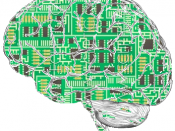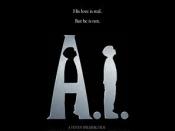Currently, I am extremely interested in a career in artificial intelligence (A.I.) research. In this paper, I will present a summary of the history and current status of the field, the education that is necessary to pursue a career in artificial intelligence, and the current and projected states of the A.I. job market. In addition to the sources cited in my bibliography, I have interviewed Dr. Cynthia Thompson, an assistant professor at the University of Utah specializing in artificial intelligence, especially the fields of machine learning and natural language processing. Her comments will be inserted when appropriate.
"Artificial intelligence" is not an easy term to define. I came across many definitions in my research, but the one used by the American Association for Artificial Intelligence seems to be the best: "the scientific understanding of the mechanisms underlying thought and intelligent behavior and their embodiment in machines." (AAAI Topics Overview, n.d.).
The beginnings of A.I. lie somewhere in the 1940s - Margaret Boden, in 1995, placed the genesis of the field in Warren McCulloch and Walter Pitts' 1943 paper, "A Logical Calculus of the Ideas Immanent in Nervous Activity", which stated that any proposition expressible in logic can also be expressed by simple neural nets (which replicate the structure of the human brain). One man is generally considered a very important part of the history of A.I., and computing in general - Alan Turing, who, in 1950, said that "machines will eventually compete with men in all purely intellectual fields." He devised what is now known as the Turing Test, a way to determine the sentience of an A.I. program (or anything else).
One of the earliest problems facing A.I. research was that of learning. In Ray Kurzweil's 1987 documentary The Age of Intelligent Machines (the basis for his 1992 book...


